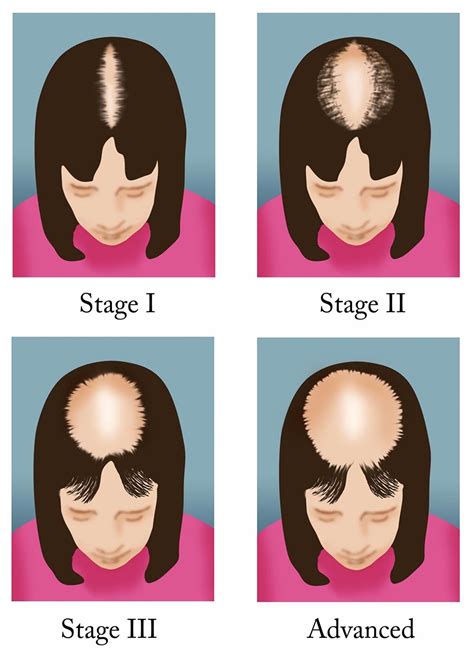Losing hair is a common problem that affects both men and women. It can be caused by a variety of factors, including genetics, hormones, and illness. Hair loss on top of the head, also known as alopecia, can be especially noticeable and distressing.

Causes of Hair Loss on Top of Head
There are many potential causes of hair loss on top of the head. Some of the most common include:
1. Male Pattern Baldness
Male pattern baldness is the most common cause of hair loss in men. It is caused by a combination of genetics and hormones. Male pattern baldness usually begins at the temples and crown of the head and progresses over time.
2. Female Pattern Baldness
Female pattern baldness is the most common cause of hair loss in women. Like male pattern baldness, it is caused by a combination of genetics and hormones. Female pattern baldness typically causes a thinning of the hair all over the head, rather than just at the temples and crown.
3. Alopecia Areata
Alopecia areata is an autoimmune disorder that causes hair loss in patches. Alopecia areata can affect people of all ages, but it is most common in children and young adults.
4. Telogen Effluvium
Telogen effluvium is a condition that causes temporary hair loss. Telogen effluvium can be caused by a variety of factors, such as stress, illness, or childbirth.
5. Trichotillomania
Trichotillomania is a mental health disorder that causes people to pull out their hair. Trichotillomania can lead to significant hair loss on the top of the head.
Symptoms of Hair Loss on Top of Head
The symptoms of hair loss on top of the head can vary depending on the cause. Some of the most common symptoms include:
1. Gradual thinning of the hair
2. Circular patches of hair loss
3. Sudden hair loss
4. Itching or burning of the scalp
5. Pain or tenderness of the scalp
Solutions for Hair Loss on Top of Head
There are a number of solutions available for hair loss on top of the head. The best solution for you will depend on the cause of your hair loss. Some of the most common solutions include:
1. Medications
There are a number of medications that can be used to treat hair loss. These medications can help to slow or stop hair loss and promote hair growth.
2. Surgery
Surgery is an option for people who have significant hair loss. Hair transplantation is a surgical procedure that involves moving hair from another part of the body to the top of the head.
3. Laser Therapy
Laser therapy is a non-surgical treatment for hair loss. Laser therapy uses low-level lasers to stimulate hair growth.
4. Home Remedies
There are a number of home remedies that can help to slow or stop hair loss. These remedies include:
- Massaging the scalp
- Applying essential oils to the scalp
- Taking supplements that promote hair growth
Preventing Hair Loss on Top of Head
There are a number of things you can do to help prevent hair loss on top of the head. These include:
1. Eating a healthy diet
2. Getting regular exercise
3. Managing stress
4. Avoiding harsh chemicals and hairstyles
5. Seeing a doctor if you notice any signs of hair loss
When to See a Doctor
You should see a doctor if you notice any signs of hair loss on top of the head. Your doctor can help to determine the cause of your hair loss and recommend the best course of treatment.
Additional Resources
- American Academy of Dermatology
- National Institute of Arthritis and Musculoskeletal and Skin Diseases
- National Library of Medicine
